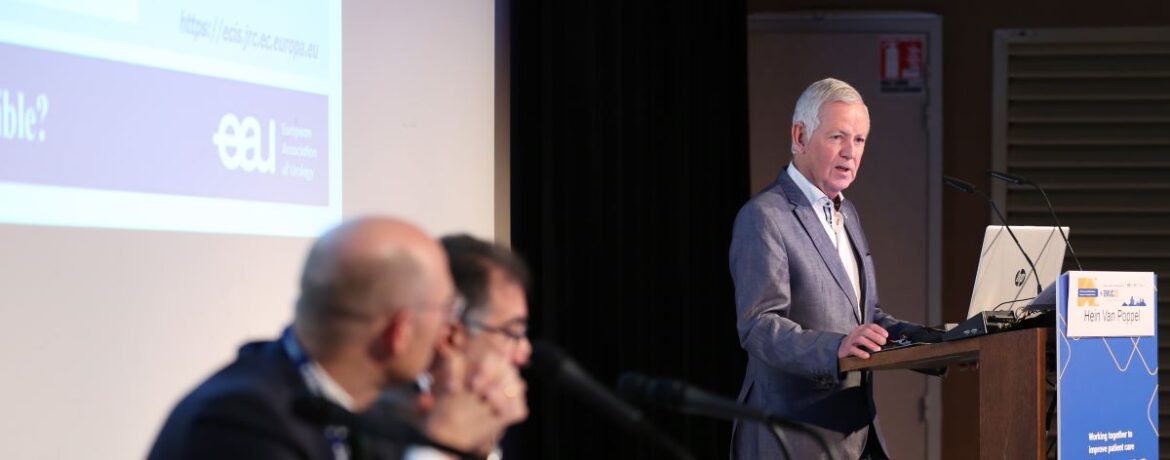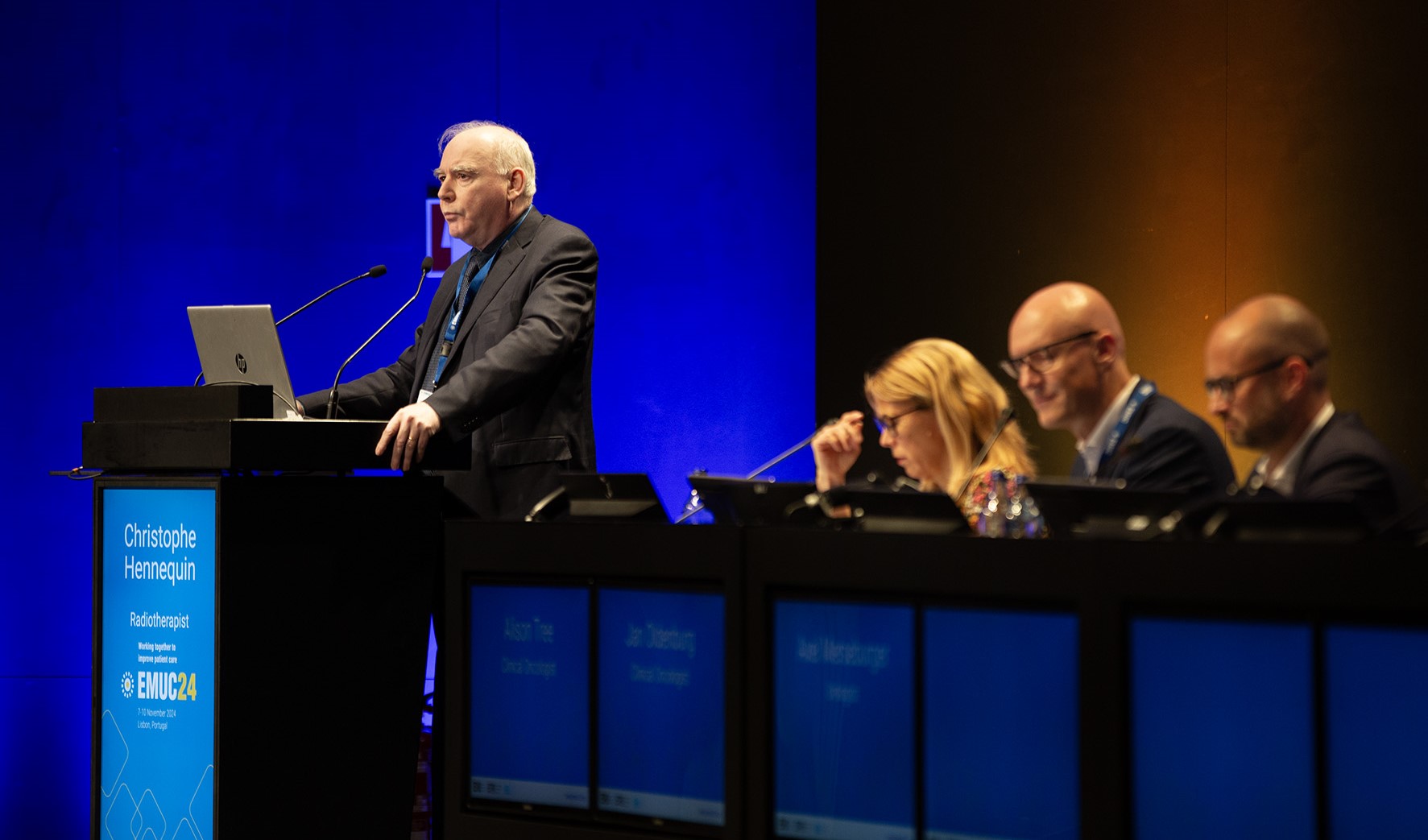This year, the annual EAU Section of Urological Imaging (ESUI) meeting has been integrated into the 15th European Multidisciplinary Congress on Urological Cancers (EMUC23) scientific programme.
With five ESUI plenary sessions on the agenda, the meeting began with the ‘The future of prostate cancer screening programme in EU: Evidence, technologies and strategies’, led by Prof. Lars Budäus (DE) and ESUI Chair Prof. Francesco Sanguedolce (ES).
Customised and risk-based screening
EAU Policy Office Chair Prof. Hein Van Poppel (BE) presented the opening lecture, ‘EU recommendations on PCa screening programme: What we expect in the next 5 years’. He stated that 417,000 men in Europe are diagnosed with prostate cancer (PCa) every year, more than two million European men are living with prostate cancer, and 92,200 European men die of PCa each year.
Prof. Van Poppel: “We convinced policymakers of the problem and the need to decrease PCa deaths. Stop the increasing rate of too-late diagnosis, stop the costly and inappropriate/inefficient opportunistic testing, and improve the quality of life (QoL) of PCa patients”. He stated that the solution is organised screening throughout Europe, and emphasised the importance of early detection in well-informed men.
The EU4Health called for proposals for innovative approaches to PCa screening, and in partnership with a network of consortium members, PRAISE-U (Prostate cancer Awareness and Initiative for Screening European Union) was set up to encourage early detection and diagnosis of PCa through customised and risk-based screening programmes. According to Prof. Van Poppel there will be five pilot studies in the EU in 2024, and a report submitted to the European Commission in 2026.
MRI challenges
Looking into the complexities of screening populations, radiologist Dr. Ivo Schoots (NL) delivered a lecture on ‘Challenges of MRI in (any) screening programmes’.
Dr. Schoots: “For prostate MRI, population PCa screening is now a new indication, however, PCa screening with MRI needs to be clearly understood by radiological and urological services, and MRI needs to be optimised before implementation into the screening pathway”.
“I want to stress that PCa screening is only acceptable if it is programmatic, and we can reduce harm (while maintaining and improving detection rates), such as using MRI to avoid biopsies, stop doing systemic (blind) biopsies, perform safer and more accurate MRI-directed biopsy, and increase uptake of active surveillance.”
According to Dr. Schoots, MRI-pathway limitations in secondary care will also be translated into primary screening. He discusses the harm of false positives, limited availability of high-quality MRI’s, requirements of specialised equipment, and training.
An update on lung cancer screening model
Continuing on the topic of screening models, Prof. Torsten Gerriet Blum (DE) presented a lecture on ‘The lung cancer screening model’. He stated that low-dose CT lung cancer screening is very promising but it does need time, joint actions and resilience to successfully implement.
Prof. Blum: “When reviewing low-dose CT lung cancer screening, there is RCT-based evidence demonstrating efficacy and cost-effectiveness in risk populations. Overdiagnosis and over therapy is probably the most relevant problem. There are implementation studies (Croatian national programme) demonstrating efficacy and safety.”
He also pointed out the essential need for a structured programme with robust algorithms for LDCT (low-dose computed tomography) reading and nodule management, as well as quality assurance.
This Plenary Session also included a session on “Prostate cancer screening: The PSA/biomarker implemented pathway”, with presentations on the GOTEBORG-2 trial, and ProSa trial. The Prostagram Trial and Re-Imagine trial were presented in the “PCa screening – The MRI only pathway”.
Watch the full presentations from ESUI Plenary Session 1 via the Resource Centre – EMUC23 (uroweb.org).





